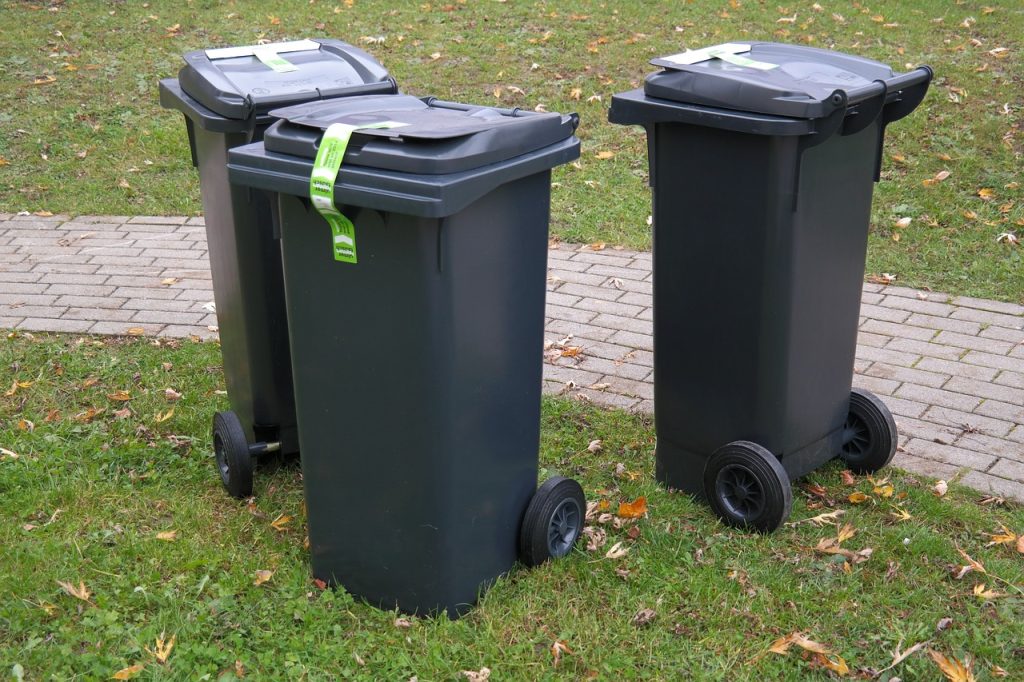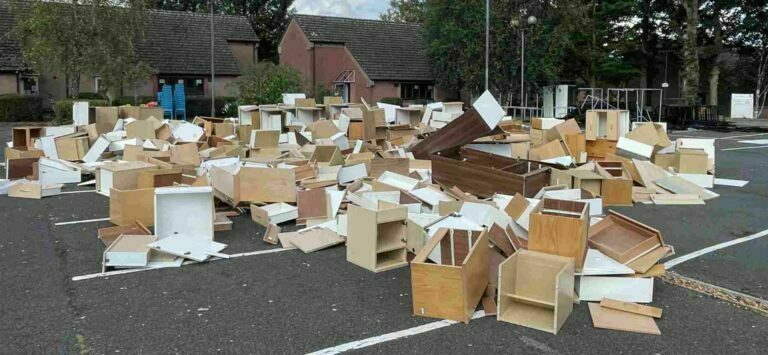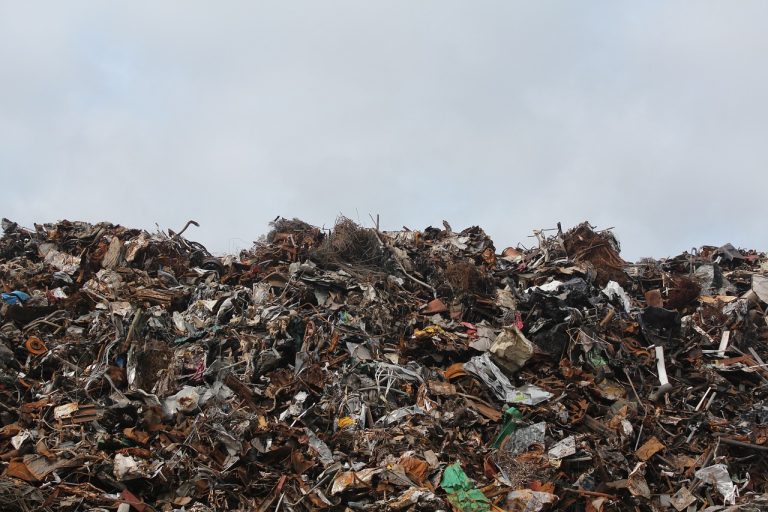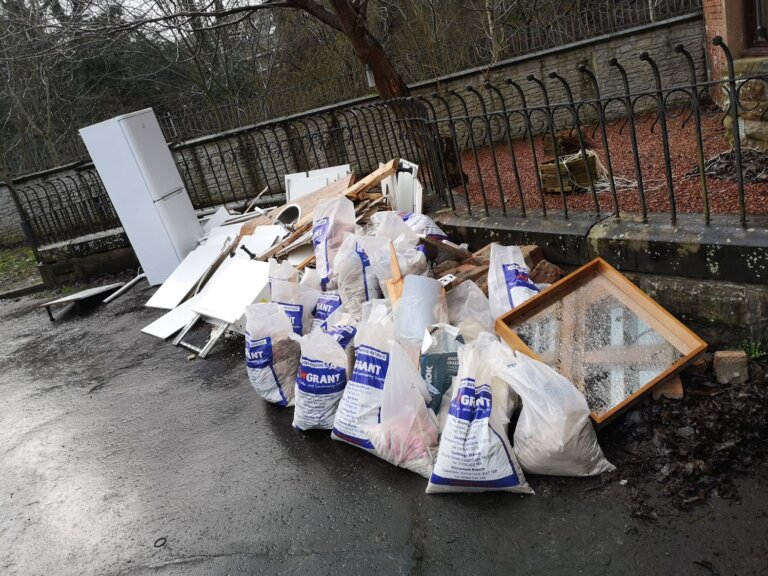Can you keep your bins at the front of your house
Are you tired of constantly moving your bins back and forth to the front of your house on rubbish collection day? You’re not alone. This straightforward task can be time-consuming and frustrating. In this article, we’ll discuss the importance of keeping your bins at the front of your house and offer solutions to make this chore easier for you.
Is it Allowed to Keep Bins at the Front of Your House?
Keeping bins at the front of your house is subject to local regulations. In many areas, it is allowed as long as they are not causing obstruction or eyesores. Some councils may have specific guidelines for bin placement and collection days. It is important to check with your local council to ensure compliance with their rules.
Pro-tip: To maintain a tidy appearance, consider using screening or storage solutions to conceal bins from view.

What Are the Rules and Regulations for Bin Placement?
When it comes to bin placement, it is important to follow the rules and regulations set by your local council. These regulations dictate where bins can be placed and how they should be presented for collection. Some common rules include keeping bins within your property boundaries, placing them at the designated collection point, and ensuring they are easily accessible for collection crews. Failure to comply with these regulations can result in fines or other penalties. It is always a good idea to check with your local council to understand the specific rules for bin placement in your area.
In 2008, a small town in the UK made headlines when a resident placed their bin in front of their house as a protest against the strict bin placement rules. The resident argued that the regulations were too restrictive and inconvenient for residents. The story gained national attention, sparking a debate about the balance between individual rights and community aesthetics. Eventually, the council revised their regulations, allowing residents more flexibility in bin placement while still maintaining a clean and orderly appearance.
Are There Any Local Laws or Ordinances Regarding Bin Placement?
Yes, there may be local laws or regulations regarding the placement of bins in your area. It is important to consult your local authority or municipality to find out the specific rules for bin placement. These rules may cover the location, size, and appearance of the bins, as well as the designated collection days. By following these rules, you can avoid possible fines or penalties and maintain a clean and tidy neighbourhood. It is always advisable to stay informed about the local laws and regulations concerning bin placement in order to promote a harmonious community.
What Are the Guidelines for Bin Placement Set by the Local Authority?
The guidelines for bin placement set by the local authority vary depending on the area. Some common guidelines include:
- Bins should be placed at the front of the property, close to the kerb or designated collection point.
- Bins should be easily accessible for the collection crew, with enough space around them.
- Bins should not obstruct pavements or driveways.
- Bins should be placed out for collection on the designated collection day and retrieved promptly afterwards.
- Bins should not be overfilled or contain prohibited materials.
- Some local authorities may have additional guidelines or restrictions specific to their area.

What Are the Benefits of Keeping Bins at the Front of Your House?
When it comes to storing your bins, there are two main options: keeping them at the front or back of your house. In this section, we will explore the benefits of keeping your bins at the front of your house. From the convenience of collection to the safety of your bins, there are several advantages to this approach. We will also touch on the impact on the appearance of your home and how it can be improved by keeping your bins at the front. Let’s take a closer look at the benefits of this storage method.
Convenience for Collection
Convenience for collection is a key advantage of keeping bins at the front of your house. Here are steps to maximize this convenience:
- Place bins in an easily accessible location near your property entrance.
- Ensure bins are easily visible and identifiable for collection workers.
- Keep the path to the bins clear of obstacles or hazards.
- Regularly empty the bins to prevent overflow and odors.
- Follow local waste management schedules and guidelines.
Pro-tip: Coordinate bin placement with neighbours to create a streamlined collection area for added convenience.
Reduced Risk of Theft or Vandalism
Reducing the risk of theft or vandalism is a significant advantage of keeping bins at the front of your house. By placing the bins in a visible and easily accessible location, it becomes harder for potential thieves or vandals to target them. Additionally, the presence of bins near your home can act as a deterrent, as it gives the impression that someone is present and actively using the property.
To further enhance security, consider installing outdoor lighting or a security camera system. Taking these precautions can help ensure the safety of your bins and property.
Improved Aesthetics
Keeping bins at the front of your house can help improve the appearance. By strategically positioning the bins, you can keep the exterior tidy and visually appealing. Consider using decorative bin enclosures or screens to hide them from view. This will not only enhance the overall look of your property but also create a more welcoming environment.
Additionally, keeping bins at the front can contribute to a cleaner neighbourhood and encourage a sense of pride among residents. With careful placement and attention to detail, you can enjoy the benefits of improved aesthetics while efficiently managing waste disposal.
What Are the Disadvantages of Keeping Bins at the Front of Your House?
While it may seem convenient to keep your bins at the front of your house, there are several potential disadvantages to consider. In this section, we will discuss the negative aspects of keeping bins at the front of your house, including issues with odour and pests, potential safety hazards, and possible violations of homeowners association rules. By understanding these drawbacks, you can make an informed decision about the placement of your bins and how it may impact your daily life.
Odour and Pests
Keeping bins at the front of your house can lead to issues with odour and pests. The accumulation of garbage in bins can emit unpleasant smells, attracting pests like rats, flies, and ants. The presence of these pests near your home can pose health risks and create an unsanitary environment.
To mitigate these issues, it is important to ensure that bins are tightly sealed and emptied regularly. Additionally, proper waste management practices, such as separating organic waste, can help reduce odour and discourage pests. Exploring alternative storage options, such as storing bins in a side yard or using bin enclosures, can also help address these concerns.
Potential Safety Hazards
Keeping bins at the front of your house can create potential safety risks that need to be taken into account. These risks include:
- Tripping hazards: Bins placed in walkways or near entrances can block paths and cause accidents.
- Fire hazards: Storing bins near flammable materials or heat sources increases the risk of fire.
- Falling hazards: Bins stacked in an unstable manner or in precarious locations may fall over and cause injuries.
- Obstruction hazards: Bins placed in front of windows or emergency exits can hinder evacuation during emergencies.
- Wildlife encounters: Open bins can attract pests and wildlife, increasing the risk of bites or disease transmission.
To reduce these risks, consider alternative options such as storing bins in a side yard or garage, using bin enclosures, or using a bin storage service.
Violation of Homeowners Association Rules
Violating homeowners association (HOA) rules regarding bin placement can have consequences. HOAs may have specific guidelines on where bins should be stored, which may include not keeping them at the front of your house. Breaking these rules may result in warnings, fines, or legal action. To avoid such issues, it is important to familiarise yourself with the rules and regulations set by your HOA regarding bin placement.
Consider alternative options such as:
- Storing bins in a side yard or garage.
- Using bin enclosures or screens.
- Using bin storage services to comply with HOA rules and maintain a harmonious neighbourhood.
What Are Some Alternatives to Keeping Bins at the Front of Your House?
The placement of rubbish bins can often be a cause of disagreement among homeowners, particularly when it comes to keeping them at the front of the house. However, do not worry, there are other options available that can help preserve the visual appeal of your home while still efficiently storing your bins. In this section, we will explore some alternatives to keeping bins at the front of your house, such as storing them in a side yard or garage, using a bin enclosure or screen, and making use of a bin storage service.
Storing Bins in a Side Yard or Garage
To store bins in a side yard or garage, follow these steps:
- Clean the area: Clear any clutter or debris from the side yard or garage to make space for the bins.
- Install storage racks or shelves: Use shelves or racks to keep the bins organized and easily accessible.
- Label the bins: Label each bin with its designated purpose, such as recycling, compost, or general waste.
- Create a system: Establish a routine for regularly emptying and cleaning the bins to maintain a clean and odour-free area.
- Secure the area: Ensure the side yard or garage is secure to prevent unauthorized access to the bins.
Did you know that storing bins in a side yard or garage can help keep your outdoor space tidy and free from clutter?
Using a Bin Enclosure or Screen
Using a bin enclosure or screen is a practical solution for keeping bins at the front of your house. Here are the steps to set up a bin enclosure or screen:
- Choose a suitable location near your house to install the enclosure or screen.
- Select a sturdy and durable material, such as wood or metal, for building the enclosure or screen.
- Measure the dimensions of your bins to ensure the enclosure or screen is spacious enough to accommodate them.
- Construct the enclosure or screen according to the measurements, ensuring proper ventilation and easy access for placing and retrieving the bins.
- Install the enclosure or screen securely, ensuring it is stable and resistant to strong winds or other weather conditions.
- Add any additional features like locks or hinges for added security and convenience.
- Regularly maintain and clean the enclosure or screen to prevent odors and pests.
Using a Bin Storage Service
Using a bin storage service can be a convenient alternative to keeping bins at the front of your house. Here are the steps to utilize this service effectively:
- Research: Look for reputable bin storage service providers in your area.
- Contact: Reach out to the chosen service provider to inquire about their offerings and pricing.
- Schedule: Coordinate with the service provider to set up a schedule for bin collection and storage.
- Delivery: Arrange for the service provider to deliver empty bins to your house.
- Usage: Fill the bins with your waste according to the guidelines provided by the service provider.
- Collection: Notify the service provider when the bins are ready for collection.
- Storage: The service provider will collect the bins and store them securely until the next collection.
- Payment: Make timely payments to the service provider for the storage and collection services.







